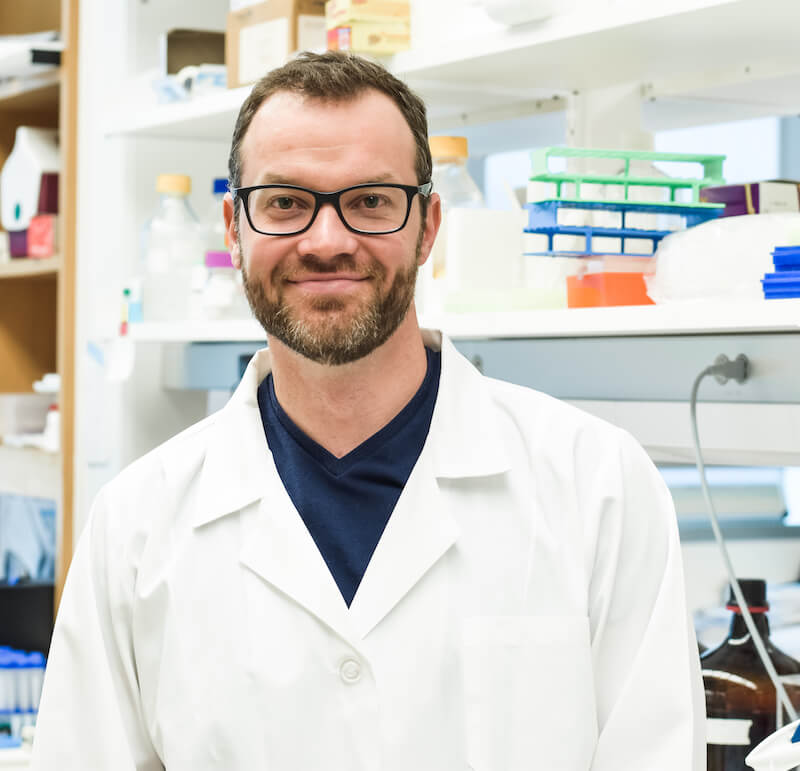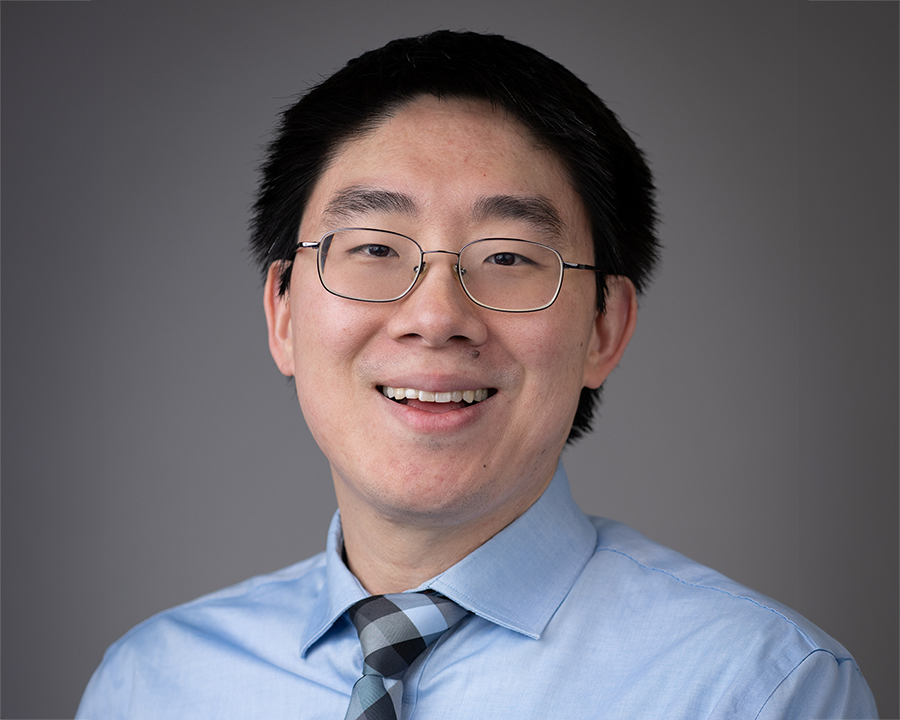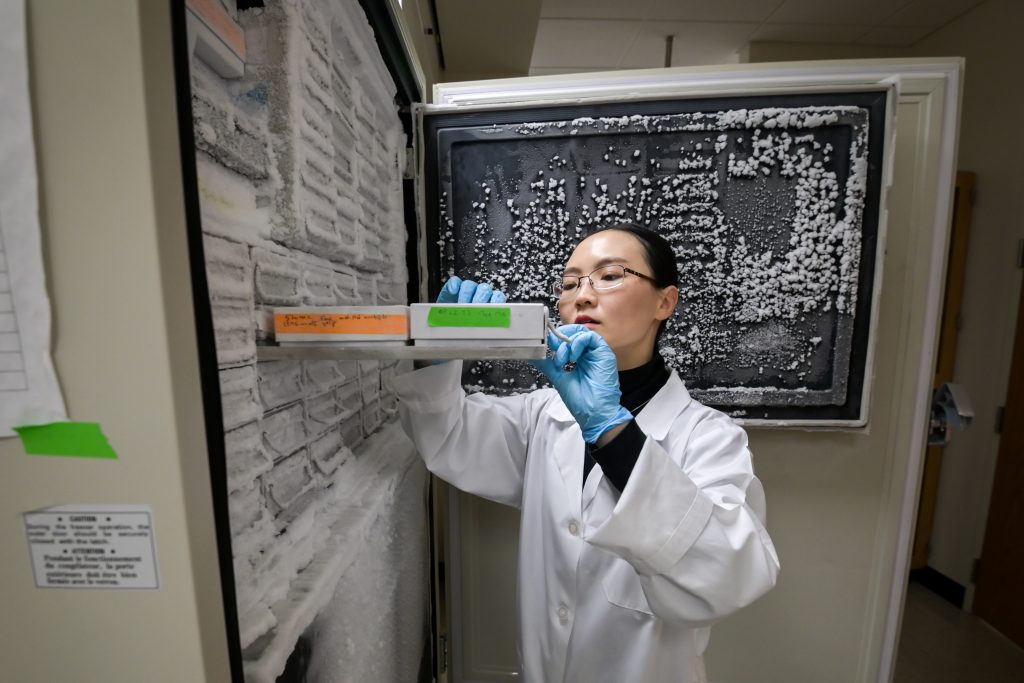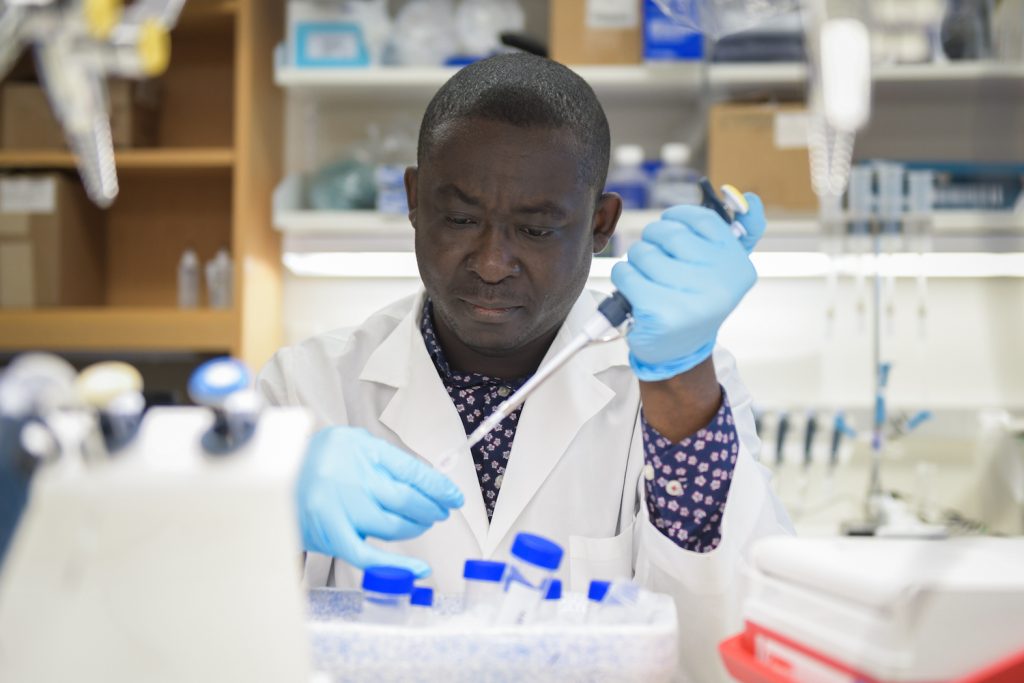 Brandon Faubert, Ph.D., a postdoctoral researcher in the DeBerardinis lab at CRI, was recently awarded a Pathway to Independence Award (K99/R00) from the National Cancer Institute in the National Institutes of Health. This award provides exceptional postdoctoral researchers with the training and support they need to transition into the role of independent investigators.
Brandon Faubert, Ph.D., a postdoctoral researcher in the DeBerardinis lab at CRI, was recently awarded a Pathway to Independence Award (K99/R00) from the National Cancer Institute in the National Institutes of Health. This award provides exceptional postdoctoral researchers with the training and support they need to transition into the role of independent investigators.
Dr. Faubert will receive more than $950,000 over five years to continue his research into the metabolism of lung cancer, the leading cause of cancer deaths worldwide.
“I’m equally excited and honoured to receive this award from the NIH. I am greatly indebted to my mentors and collaborators who were instrumental in this work and these projects, as well as the patients who made this original work possible,” said Dr. Faubert, who is also a Canadian Institutes of Health Research Fellow.
Dr. Faubert is a key part of a large, multidisciplinary team of researchers and clinicians that studies tumor metabolism directly in patients with non-small cell lung cancer, using a combination of imaging techniques and infusions of isotope-labeled nutrients.
He will complete the initial K99 phase of the grant, which is designed to help with career development, at CRI in the DeBerardinis lab. Dr. Faubert’s work will include creating clinically-relevant tumor models and learning new techniques to help test and evaluate why tumors use certain metabolites and how this influences aggressive tumor behavior. The R00 phase of the grant will provide Dr. Faubert up to three years of independent research funding after he transitions to a new position where he plans to continue his research into cancer metabolism and metastasis.
“Brandon’s research has already established exciting new ideas in human cancer metabolism, and this grant will allow him to advance those ideas even further,” said his mentor Dr. Ralph DeBerardinis, a professor at CRI and a Howard Hughes Medical Institute Investigator. “Brandon is a talented and creative young scientist. We are glad he chose to train at CRI and look forward to helping him develop into an independent investigator with his own lab.”



